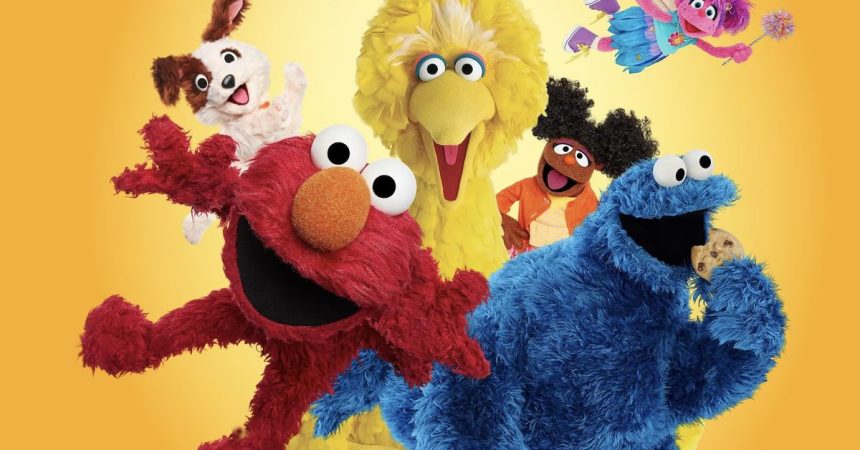The streaming landscape for children’s programming is undergoing a significant shift, with Warner Bros. Discovery opting not to renew its deal with Sesame Workshop for new episodes of the iconic children’s show, Sesame Street. This decision, reported by The Hollywood Reporter, marks the end of an era where HBO and Max served as the premiere platforms for new Sesame Street content. While the current library of episodes will remain available on Max until 2027, future seasons, beginning with season 56, will need to find a new streaming home. This strategic move by Warner Bros. Discovery signals a refocusing of their platform towards adult and broader family entertainment, prioritizing projects like the highly anticipated Harry Potter series slated for 2026, over dedicated children’s programming. This shift leaves a potential opening in the market for another streaming service to become the new destination for Sesame Street, and raises questions about the evolving strategies for children’s content distribution in the increasingly competitive streaming world.
The departure of new Sesame Street episodes from Max highlights a broader trend in the streaming industry: the increasing specialization of platforms. While Max has offered a selection of children’s programming, it has not been its primary focus. Other platforms, such as Disney Plus, Netflix, and even YouTube Kids, have cultivated extensive libraries of children’s content, making them more attractive destinations for families seeking a wider range of options. Disney Plus, with its vast library of Disney classics and original animated series, caters to a broad audience of children. Netflix, while also offering a diverse range of content, has invested heavily in original children’s programming, featuring interactive shows and educational series. YouTube Kids, on the other hand, provides a free, easily accessible platform with a massive library of user-generated and professionally produced content specifically designed for children. Max’s decision to move away from Sesame Street suggests a prioritization of content that aligns with its perceived core demographic, potentially seeking to attract and retain subscribers with a focus on more mature and broadly appealing entertainment.
The decision to not renew the Sesame Street deal is not a reflection on the quality or popularity of the show, but rather a calculated business move by Warner Bros. Discovery. Sesame Street continues to be a beloved and influential educational program, having entertained and educated generations of children. Indeed, the upcoming season 56, as revealed by Sesame Workshop executive Kay Wilson Stalling, promises a significant "reimagining" of the show, incorporating longer narrative segments and more sophisticated storytelling. This evolution suggests a continuing commitment to staying relevant and engaging with contemporary audiences, adapting to changing viewing habits and evolving educational needs. The search for a new streaming partner will be crucial for Sesame Street to continue reaching its target audience and ensuring its legacy of educational entertainment endures.
The changing landscape of children’s television necessitates innovative approaches to distribution and engagement. While traditional linear television remains a significant avenue for children’s programming, the rise of streaming has fragmented the audience and created new challenges for producers and distributors. Finding the right streaming partner is vital for maximizing reach and impact. Platforms that prioritize educational content, offer interactive features, and cultivate a strong brand identity focused on children’s programming are likely to be the most attractive options for a show like Sesame Street. The show’s enduring popularity and its commitment to evolving with the times position it well to negotiate a favorable deal with a streaming service that recognizes its value and potential.
The shift in Warner Bros. Discovery’s strategy also underscores the increasing competition in the streaming market. As the streaming wars intensify, platforms are increasingly defining their niches and target demographics. This specialization allows platforms to tailor their content offerings and marketing efforts, optimizing for specific audience segments and maximizing subscriber engagement. Warner Bros. Discovery’s focus on adult and broader family entertainment positions it to compete with other major players like Netflix, Amazon Prime Video, and Hulu, which offer diverse libraries of content appealing to a wide range of viewers. By prioritizing these demographics, Max aims to carve out its own distinct space within the crowded streaming landscape and establish a clear brand identity.
The future of Sesame Street in the streaming world remains to be seen, but the show’s enduring legacy and continued commitment to innovation suggest a bright future. While the departure from Max marks the end of one chapter, it opens up exciting possibilities for new partnerships and innovative distribution strategies. The search for a new streaming home will be a critical step in ensuring that Sesame Street continues to reach and educate children for generations to come. The show’s enduring value and its ability to adapt to changing media landscapes position it well to navigate this transition and thrive in the evolving world of children’s entertainment. The ultimate success will depend on finding the right platform partner that shares its educational mission and recognizes the power of Sesame Street to make a positive impact on children’s lives.



